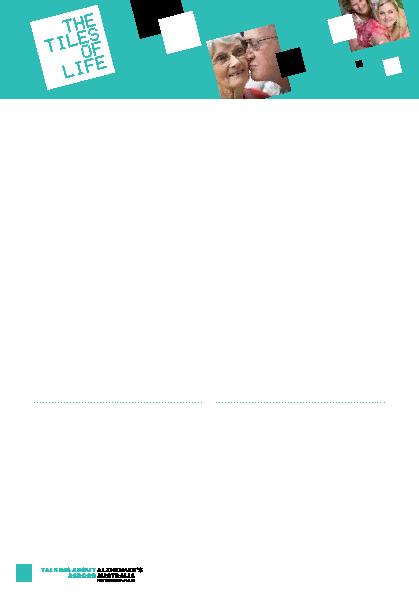
enablers and barriers to changing practice
within the workplace.
train-the- trainer approach in a 12 x week
program of assessment, education, evaluation,
and reflection. A Project Officer supported
participants, directing them towards
appropriate resources such as articles and
websites, facilitating networking amongst the
participants and facilitating workshops.
Trainer Program Pilot was trialled with
residential aged care facilities in 2012-2013.
This presentation will outline the development
of the program, the engagement strategy with
the participants, and the process of education
implementation and evaluation. Strategies for
sustainability will be discussed and examples
of projects and outcomes highlighted. Training
provides challenges for residential care
providers and initiatives that are self-sustaining
and flexible are more likely to be utilised.
of hospital presentations for people with a
dementia diagnosis, in the 5 years to 2009-
2010 (AIHW 2012). With the population
continuing to age and dementia becoming
more prevalent, Casey Hospital staff has
continued to develop innovative strategies to
better care for these patients.
Older Persons working group was formed.
The group had a vision and developed an action
plan to improve the acute hospital experience
for people with dementia. Since this time
many initiatives have been implemented.
Key highlights since presenting at the 2011
Alzheimer's Australia conference include the
development of a sensory garden and the
ongoing development of an innovative new
ward based cognition support roles.
to indicate that we have improved the patient
experience living with dementia in an acute
hospital by improving the environment,
implementing innovative and supportive
practices and the provision of on-going
education to ensure all hospital staff are
skilled in providing the best care for our aging
population improved. This presentation
will describe our new initiatives, and make
recommendations for its implementation in
other acute care settings.
Alzheimer's Australia NSW
a paper putting forward its position on the
issue of football, head injuries and the risk
of dementia. Given the volume of media
coverage, Alzheimer's Australia NSW felt that
it needed to examine the issue and develop
a position on the issue. While the increased
media focus on sports-related concussion